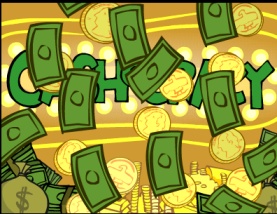By Numerian
...nothing is more important to the establishment and continuation of a democracy than a rigorous inheritance tax.
 Image-Mark Fiore
Image-Mark Fiore
My first Christmas gift to you is my most favorite of all quotes, from that most astute observer of democracy, Alexis de Tocqueville. He was a man who was intimately familiar with the social sclerosis that resulted from aristocracy, and he had a chance to compare it in the 1830s to the newly-invented American democracy. He said the following in Book I of his Democracy in America.
I am surprised that ancient and modern writers have not attributed greater importance to the laws of inheritance and their effect on the progress of human affairs. They are, it is true, civil laws, but they should head the list of all political institutions, for they have an unbelievable influence on the social state of peoples, and political laws are no more than the expression of that state. Moreover, their way of influencing society is both sure and uniform; in some sense they lay hands on each generation before it is born. By their means man is armed with almost supernatural power over the future of his fellows. When the lawgiver has once fixed the law of inheritance, he can rest for centuries; once the impulse has been given to his handiwork, he can take his hand away; the mechanism works by its own power and apparently spontaneously aims at the goal indicated beforehand. If it has been drafted in a certain way, it assembles, concentrates, and piles up property, and soon power too, in the hands of one man; in a sense it makes an aristocracy leap forth from the ground. Guided by other principles and directed towards other goals, its effect is even quicker; it divides, shares, and spreads property and power; then sometimes people get frightened at the speed of its progress; despairing of stopping its motion, men seek at least to put obstacles and difficulties in its way; there is an attempt to balance its action by measures of opposite tendency. But all in vain! It grinds up or smashes everything that stands in its way; with the continual rise and fall of its hammer strokes, everything is reduced to a fine, impalpable dust, and that dust is the foundation for democracy.
Recent comments